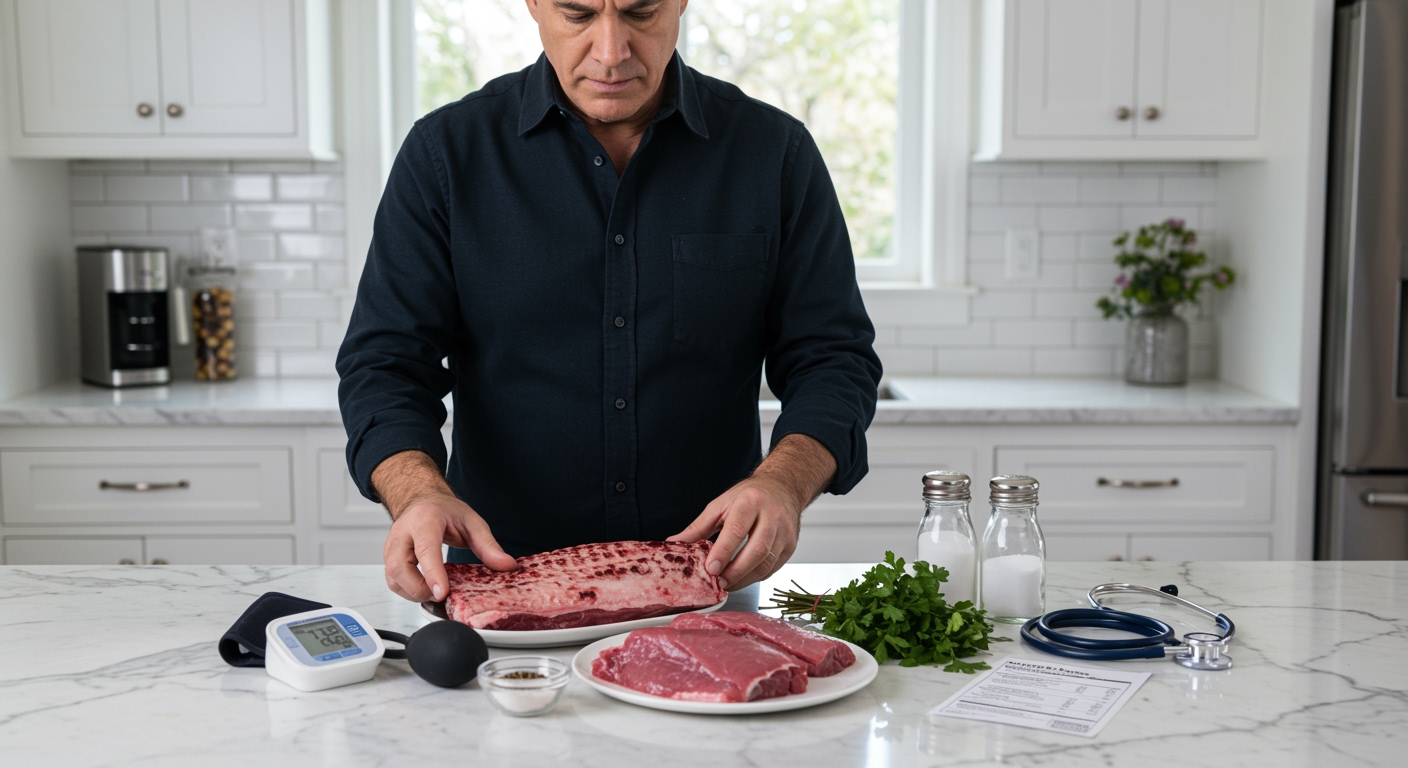✪ Key Takeaway: Crocodile meat is generally safe for hypertensive patients due to its low sodium and high protein content.
Introduction
You walk into an exotic meat restaurant and see crocodile on the menu.
Your mind races with questions about whether this unusual protein choice could spike your blood pressure or actually help manage it.
Hi, I am Abdur, your nutrition coach and today I am going to explain whether crocodile meat is safe for people with high blood pressure.
What Makes Crocodile Meat Different From Regular Meat?
Crocodile meat stands out as an exotic protein with unique nutritional characteristics that set it apart from conventional meats.
This reptilian protein contains approximately 22 grams of protein per 100-gram serving while maintaining remarkably low fat content at just 1.2 grams.
The sodium content in crocodile meat naturally sits at around 60-80 milligrams per 100 grams, which is significantly lower than processed meats.
Unlike beef or pork, crocodile meat provides complete amino acids without the saturated fat burden that typically concerns hypertensive patients.
The texture resembles chicken but with a slightly firmer consistency and a mild, almost neutral flavor profile.
✪ Fact: Crocodile meat contains less than 1% saturated fat compared to beef which contains 6-8%.
How Does Crocodile Meat Affect Blood Pressure?
The low sodium content in crocodile meat makes it naturally blood pressure friendly compared to most animal proteins.
High protein foods like crocodile meat can help maintain healthy blood vessels through improved endothelial function and arterial flexibility.
The potassium content in crocodile meat, though moderate at around 300mg per 100g, contributes to the sodium-potassium balance crucial for blood pressure regulation.
Research shows that lean proteins help maintain stable blood sugar levels, which indirectly supports cardiovascular health and blood pressure control.
The absence of nitrates and preservatives found in processed meats eliminates additional sodium sources that could elevate blood pressure.
However, preparation methods significantly impact the final sodium content and overall cardiovascular effects of crocodile meat.
✪ Pro Tip: Choose grilled or baked crocodile meat over fried preparations to maximize blood pressure benefits.
Are There Any Risks For Hypertensive Patients?
While crocodile meat appears safe for most hypertensive patients, several potential concerns deserve careful consideration.
The mercury content in crocodile meat can vary depending on the water source and environmental conditions where the animal lived.
Some crocodile farms use antibiotics and growth hormones that could potentially interfere with blood pressure medications or cardiovascular health.
Restaurant preparations often involve high-sodium marinades or cooking methods that can dramatically increase the final sodium content.
Cross-contamination during processing might introduce bacteria that could cause infections, particularly concerning for people with compromised immune systems often associated with hypertension.
The cholesterol content in crocodile meat, while lower than red meat, still requires monitoring for patients with combined hypertension and dyslipidemia.
✪ Note: Always source crocodile meat from reputable suppliers who follow proper safety and testing protocols.
What Should Hypertensive Patients Consider Before Eating Crocodile Meat?
Before adding crocodile meat to your diet, consult your healthcare provider especially if you take blood pressure medications.
Start with small portions to assess your individual tolerance and monitor your blood pressure response over several days.
Choose reputable sources that provide farm-raised crocodile meat with proper health certifications and testing documentation.
Prepare the meat using heart-healthy cooking methods like grilling, baking, or steaming without added salt or high-sodium seasonings.
Monitor your overall daily sodium intake when incorporating crocodile meat, ensuring you stay within the recommended 2,300mg daily limit.
Consider crocodile meat as an occasional protein alternative rather than a daily staple to minimize any potential long-term risks.
✪ Pro Tip: Keep a food diary to track how crocodile meat affects your blood pressure readings and overall well-being.
The Bottom Line
Crocodile meat can be a safe protein choice for hypertensive patients when sourced properly and prepared without excessive sodium.
The key to managing blood pressure lies not in avoiding all foods but in making informed choices about quality and preparation methods.
I would love to hear about your experiences with exotic meats or any questions you have about managing hypertension through diet in the comments below.
References
At NutritionCrown, we use quality and credible sources to ensure our content is accurate and trustworthy. Below are the sources referenced in creating this article:
- Practo: Protein Source Croc’s Meat Crocodile Meat
- American Heart Association: Hypertension Research
- Jamaica Observer: Is Crocodile Meat a Healthy Choice
- Wiley Online Library: Crocodile Meat Composition Study





